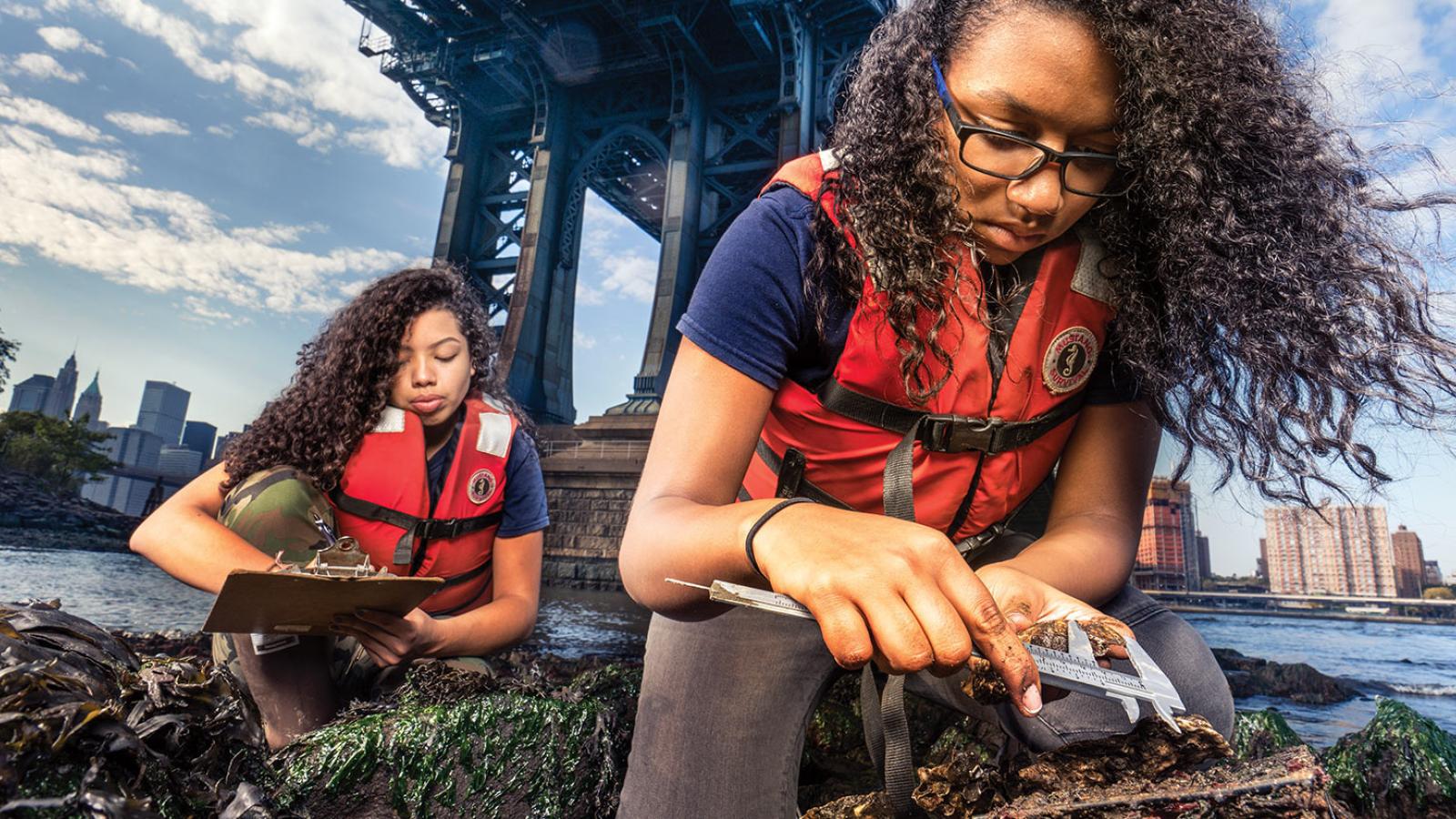
The Billion Oyster Project
The Billion Oyster Project (BOP) is an initiative aimed at restoring one billion oysters to New York Harbor, reestablishing New York as the oyster capital of the world. Through this project, the BOP seeks to foster awareness and understanding of environmental issues surrounding New York Harbor by engaging with New Yorkers of all walks of life—from researchers, to ordinary citizens, to students. By 2035, one billion live oysters will be present around 100 acres of reefs in New York Harbor.
This project will bring exciting new STEM learning opportunities to low-income students, and it will also help improve the quality of New York’s harbors and waterways–US Senator Kirsten Gillibrand
BOP is creating hands-on work through in-school STEM learning opportunities, community science and research, restaurant shell collection (partners include Grand Central Oyster Bar, Eataly, and dozens more), and well as volunteer programs. Most notably, BOP is currently working with over 70 secondary schools throughout the five boroughs. Thousands of students have participated, and have produced data sets invaluable to the growth and sustainability of New York City’s oyster population for decades to come.
Pace University is proud to be involved in the Billion Oyster Project. Through an ongoing National Science Foundation (NSF) grant that has been awarded in part to a team of educators at Pace ($7.4 million over the past four years, including a recently awarded $2 million grant), we have been able to partner with New York City public school students from underrepresented communities and create practical and exciting learning environments with direct positive impact.
“This two million National Science Foundation investment will help expand Pace University’s innovative Billion Oyster Project work, an effort to restore our harbor’s once thriving oyster ecosystem, which has massive clean water benefits because oysters are extraordinarily efficient natural filters. Congratulations to Pace University on being awarded this grant and thank you to all the schools and organizations involved in this consortium’s effort to clean New York Harbor.”–Chuck Schumer, US Senate Minority Leader
This material is based upon work supported by the National Science Foundation under Grant NSF EHR DRL-1440869 Principal Investigator Lauren B. Birney lbirney@pace.edu. Any opinions, findings, and conclusions or recommendations expressed in this material are those of the author(s) and do not necessarily reflect the views of the National Science Foundation.